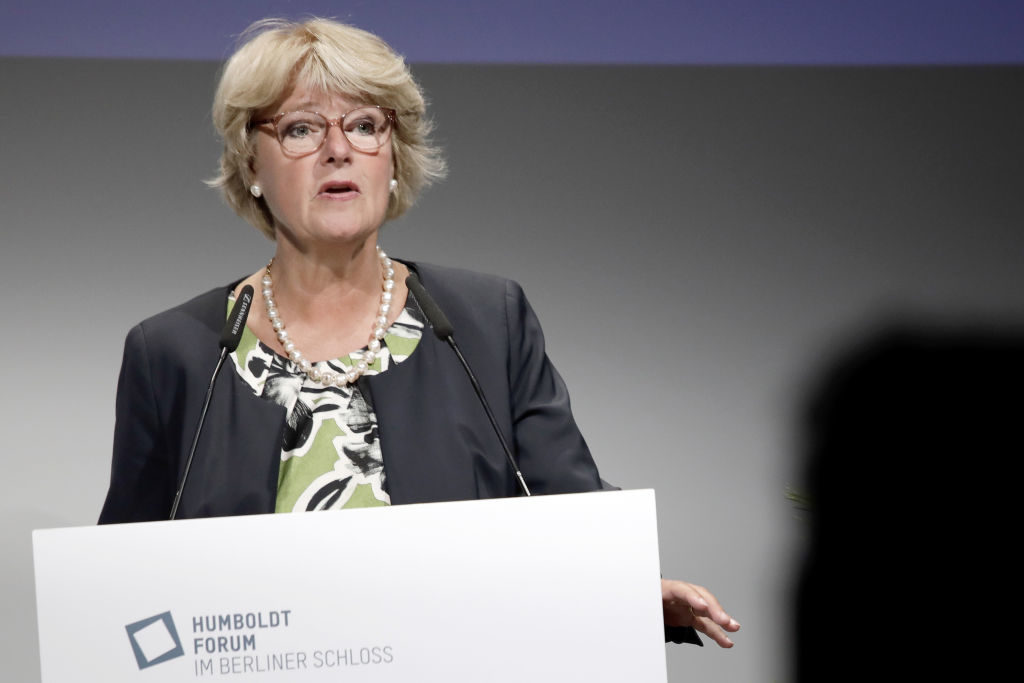Politics
Germany Continues to Lead the Way in Culture Aid, Doling Out Another €1 Billion to the Sector and Lowering the Tax Rate on Art
But some art organizations say it's not enough and that the aid disregards the situation of artists.

But some art organizations say it's not enough and that the aid disregards the situation of artists.

Kate Brown

Germany has released a new bailout package of €130 billion, including €1 billion set aside for the culture industry.
The funds, which will be made available this year and next year, will be widely distributed across cinemas, music clubs, memorials, museums, theaters, and festivals. €250 million will go to help cultural institutions reopen with new hygiene protocols, such as updated ventilation systems and new socially-distanced visitation arrangements. Some €30 million has been earmarked for galleries, cultural centers, and publishing. The package, called New Start, also decreases the tax rate on art by 3 percent.
“[W]e are supporting the new start of cultural life in Germany and setting the course for the future,” said culture minister Monika Grütters in a statement today. “For us, the preservation and safeguarding of Germany’s cultural infrastructure is the key to creating work opportunities for artists and creative people throughout the country again.”
The largest portion of the funds, €450 million, will primarily benefit facilities that are not already supported by public funding, which would include independently-owned businesses and privately-funded arts organizations. The press release states that it also aims to get creatives back to work, especially employees who have been temporarily furloughed.
The tax rate on art is also being lowered from 19 percent to 16 percent. The Federal Association of Art Dealers in Germany admits they were surprised but finds that this is far from enough and it has been asking the government to reduce the tax rate to its previous rate of 7 percent. “Anything else does not help to improve our international competitiveness permanently,” comment Birgit Sturm and Kristian Jarmuschek from the association. “It further reduces the amount with which we can support artists.”
In addition, there is still a huge gap: The reduction for gallery sales to 16 percent collides with the artist taxation of 5 percent. Thus, the central problem is and remains the inequality and injustice of the taxation of artists and galleries.
“Remarkable: The new VAT reduction for all companies was the big surprise bonus of the German government’s economic pact. So: There you go! Until now, the EU has always served as a pretext, as a barrier that would be difficult to overcome. What to do now? Simply further down the reduction to 7 percent for galleries. Just like the coalition agreement says!” the associated of galleries said in a statement sent to Artnet News.
However, the Association of Visual Artists in Berlin says the aid does not go far enough, particularly in its support for freelancers. “Freelance artists, like all other solo freelancers affected by the corona crisis, are neither supported, for example through order or purchase programs, nor receive bridging grants, which the economic stimulus package naturally provides for other sectors,” organization said in a statement. They note that the new round of cultural support totals just .7 percent of the total €130 billion and that it will need to be divided up across Germany’s 16 states.
The association is calling for a “New Deal” for art, including large-scale acquisitions and commissioning programs. “The lion’s share of the costs resulting from the pandemic in the cultural sector will be left to the federal states alone—which will then lack these funds elsewhere. And the economic stimulus package leaves the artists* and cultural workers alone all the more,” the statement says.
Olaf Zimmermann, managing director of the German Cultural Council, has pushed back on the criticism: “Culture has simply not been forgotten, as has been claimed time and again in recent weeks, but is an important part of the federal government’s economic stimulus program.”